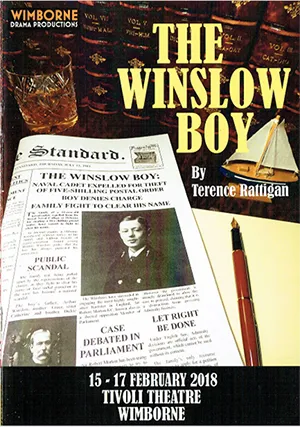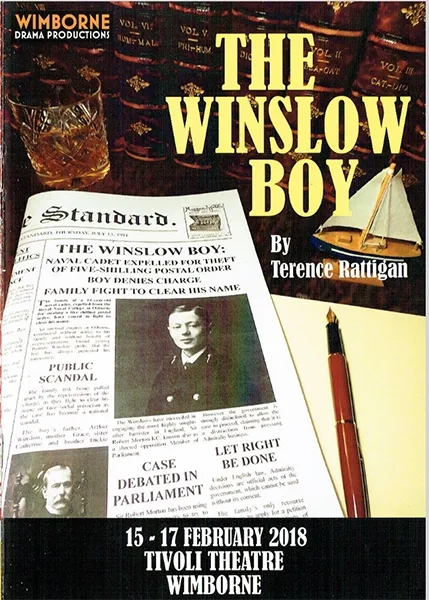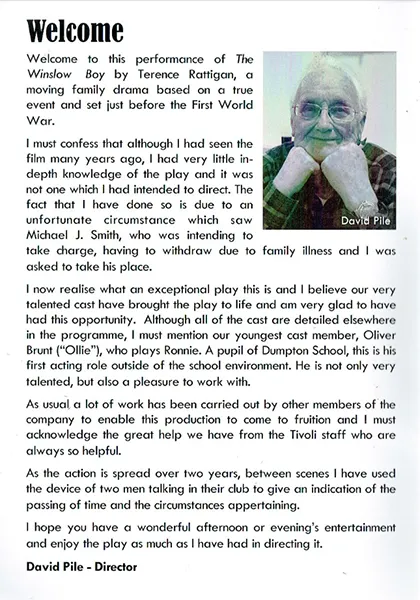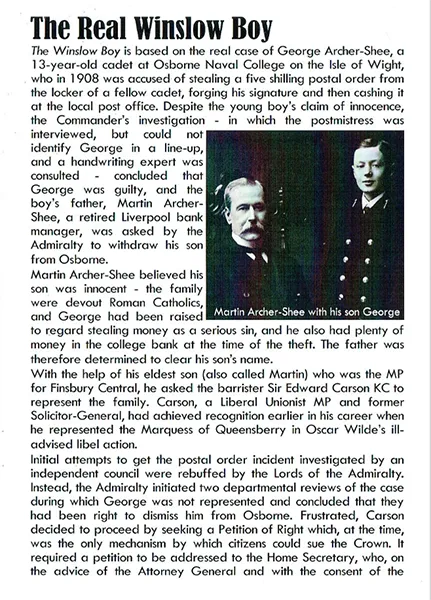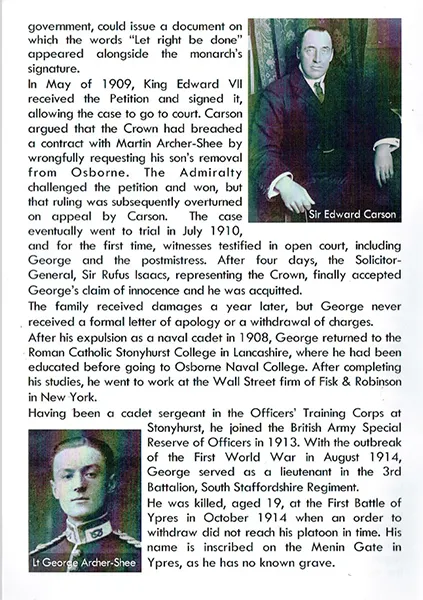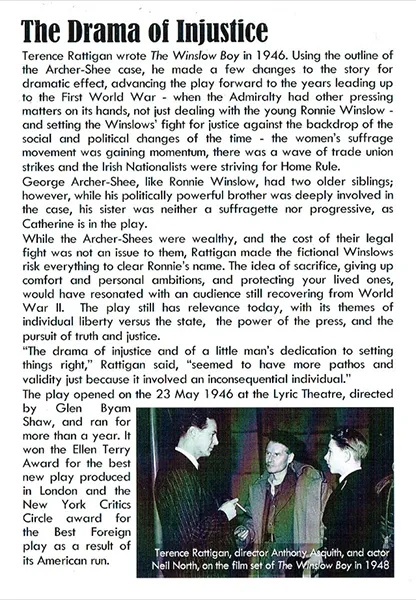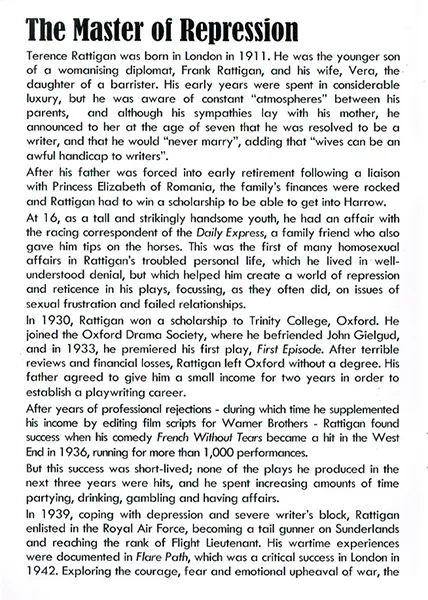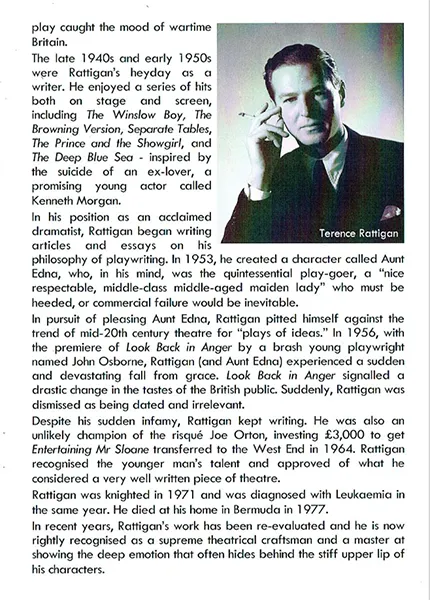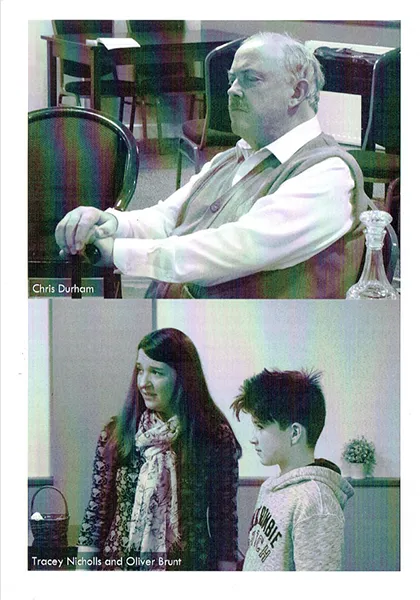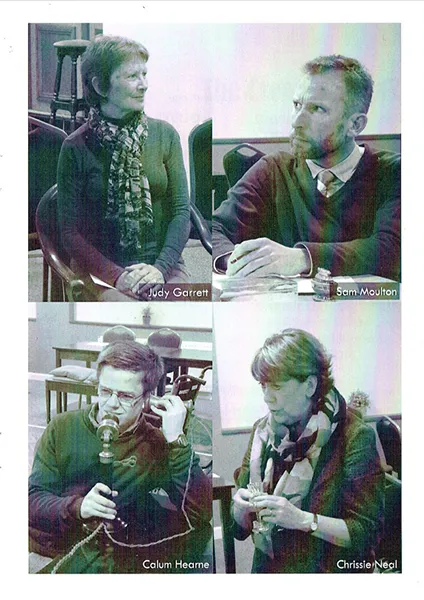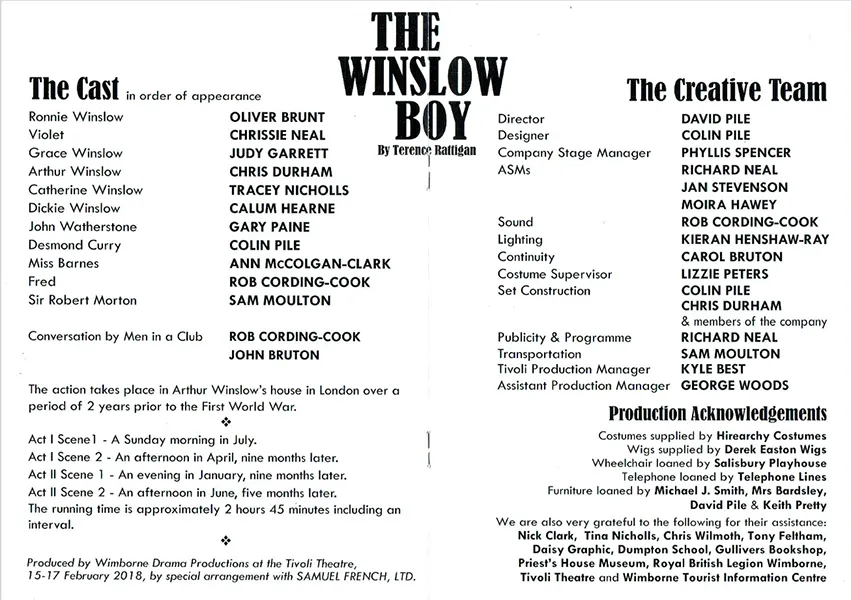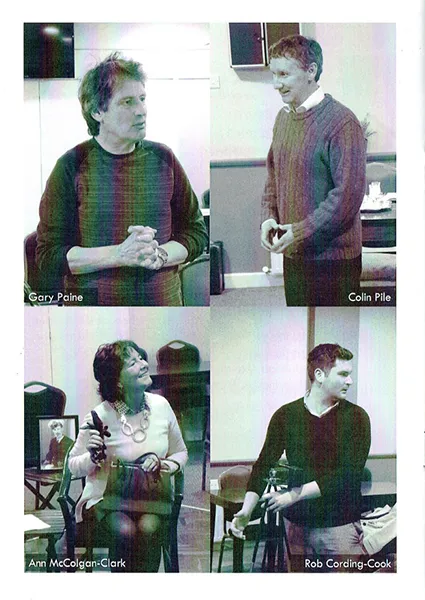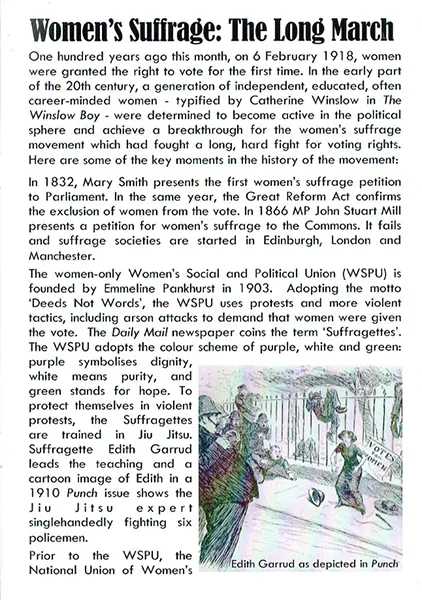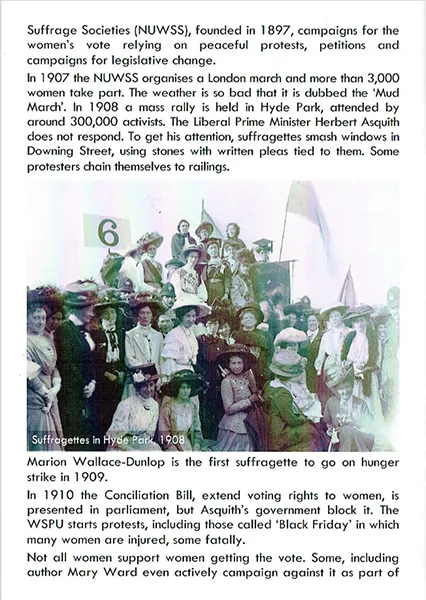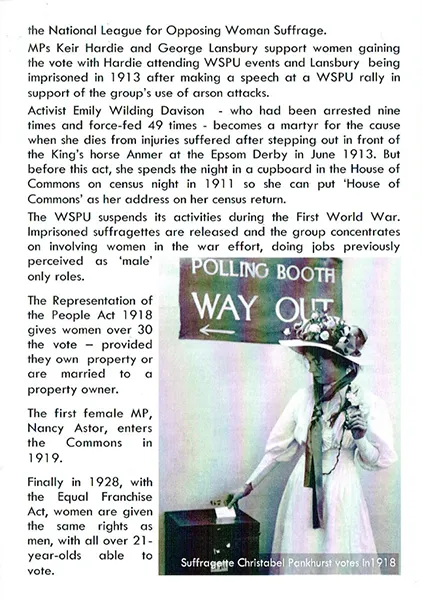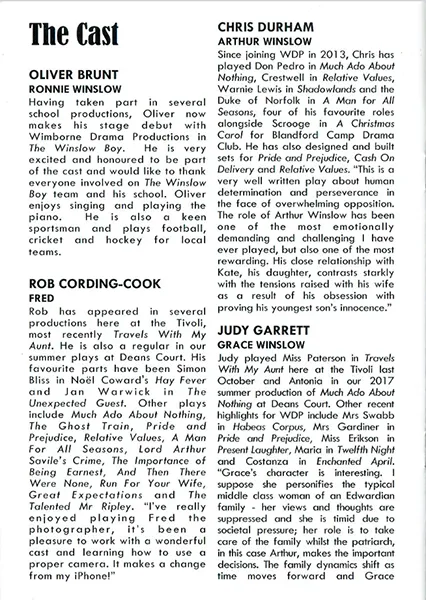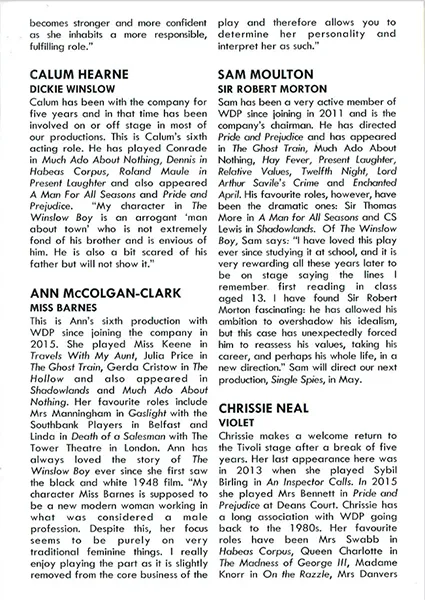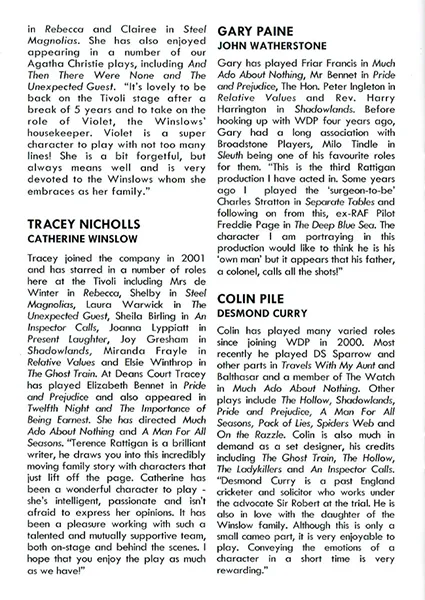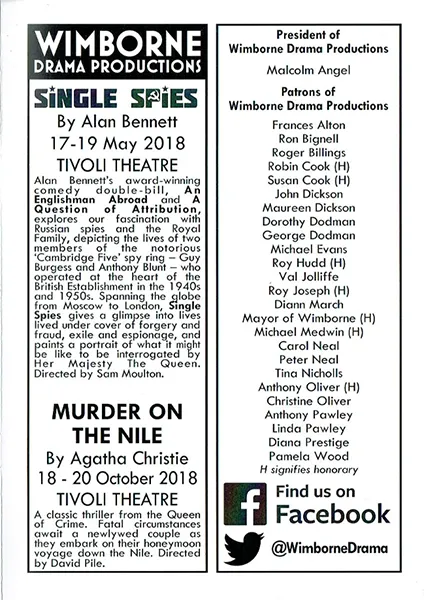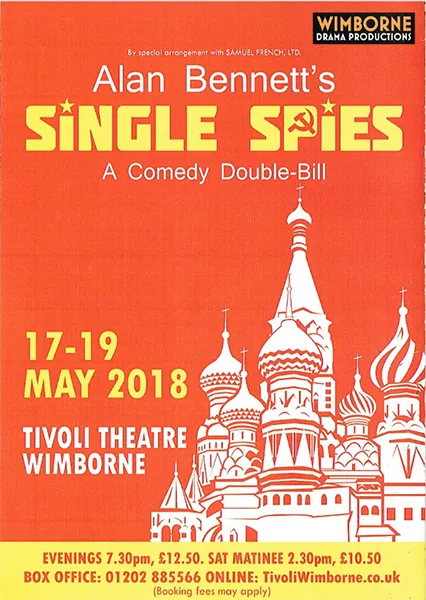Written By
Terence Rattigan
Where and When
15th – 17th February 2018 @ The Tivoli Theatre, Wimborne
The Plot
The Winslow Boy is a 1946 stage-play by the English playwright Terence Rattigan. Set in 1912, the play follows the efforts of the Winslow family to clear the name of fourteen-year-old Ronnie Winslow, expelled from naval college for allegedly stealing a five-shilling postal order. Forced to hire the country’s leading barrister, the Winslows sacrifice their upper-middle-class financial security for the sake of the family honor. The Winslow Boy is based on the real-life expulsion of George Archer-Shee from the Royal Naval College at Osborne in 1908, and the sensational legal proceedings that followed.
Cast
- Ronnie Winslow – Oliver Brunt
- Violet – Chrissie Neal
- Grace Winslow – Judy Garrett
- Arthur Winslow – Chris Durham
- Catherine Winslow – Tracey Nicholls
- Dickie Winslow – Calum Hearne
- John Watherstone – Gary Paine
- Desmond Curry – Colin Pile
- Miss Barnes – Ann McColgan-Clark
- Fred – Rob Cording-Cook
- Sir Robert Morton – Sam Moulton
Creative Team
- Director – David Pile
- Designer – Colin Pile
- Stage Manager – Phyllis Spencer
- ASMs – Richard Neal, Jan Stevenson and Moira Hawey
- Sound – Rob Cording-Cook
- Continuity – Carol Bruton
- Costume Superviser – Lizzie Peters
- Set Construction – Colin Pile, Chris Durham and Members of the Company
- Publicity and Programme – Richard Neal
- Transportation – Sam Moulton
For the Tivoli Theatre
- Production manager – Kyle Best
- Assistant Production Manager – George Woods
- Lighting – Kieran Henshaw-Ray
Gallery
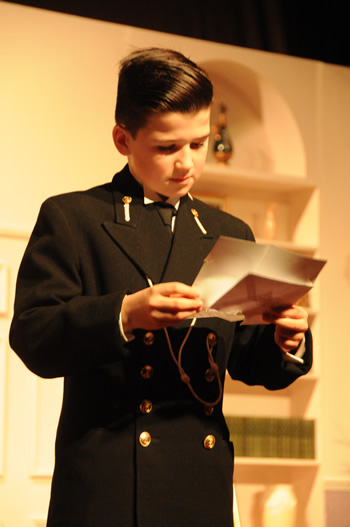
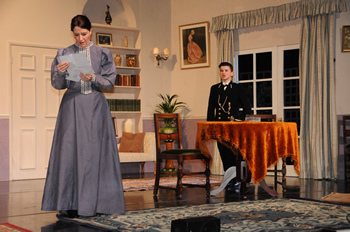
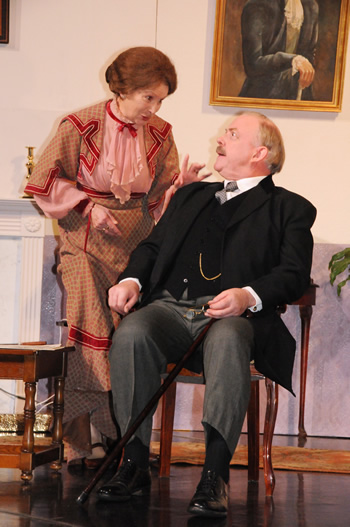

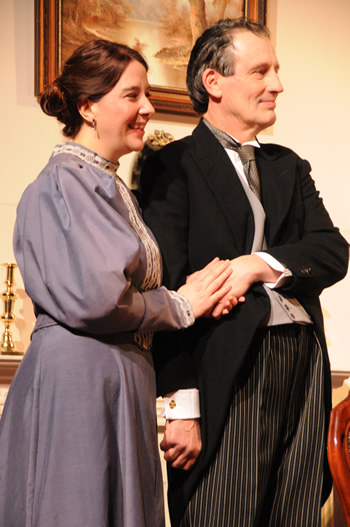

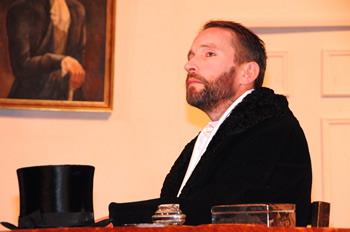

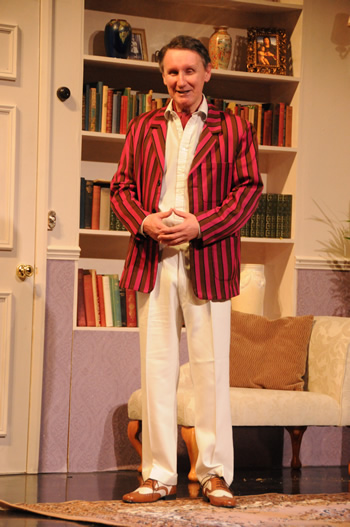
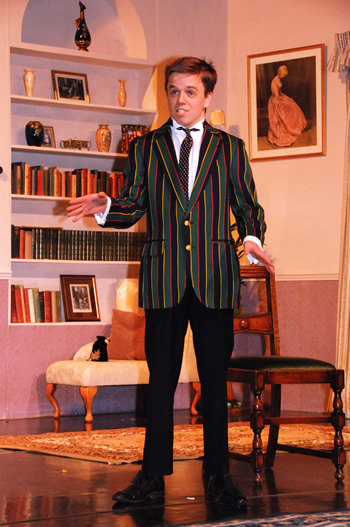

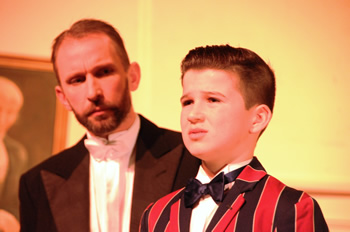
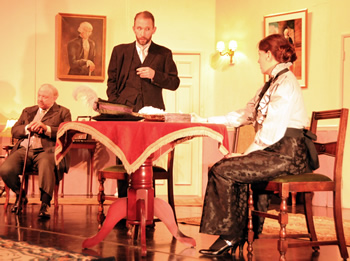
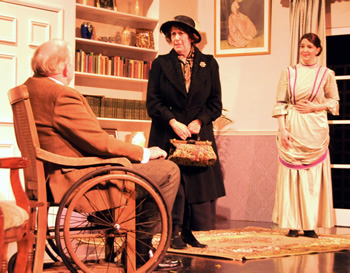
Reviews
KD Johnson – Scene One
The Winslow Boy is based on a real case of 1908 in which a thirteen-year-old cadet at the Osborne Naval Academy on the Isle of Wight was accused of stealing a five-shilling postal order and expelled. He and his family protested his innocence and began a protracted series of legal proceedings against the Admiralty and the Crown. Terence Rattigan’s 1946 play covers the same story but changes the names, moves the story a few years closer to the start of the Great War and introduces a feminist interest by making the boy’s sister a suffragette.
The Edwardian era drawing room set, expertly designed and constructed by members of the cast, immediately puts us into the early part of the 20th century. The costumes too – particularly the ladies’ dresses – really set the tone of that period (although every pair of trousers worn by Calum Hearne, as the older brother, Dickie Winslow, seems to be too short).
Oliver Brunt, a pupil from Dumpton School in Colehill, opens the action with great confidence as the title character, Ronnie Winslow. His performance throughout the play, though not major, is excellent – I read that this is his stage debut outside the school environment, but I very much hope that we will see more of him in future.
Chris Durham plays the father, Arthur Winslow, who falls immediately behind his son’s protested innocence and proceeds against the Admiralty and the Crown at the expense of his own health and the family finances. He masters the role and the complex and witty dialogue and makes light work of a number of emotional scenes with members of his family. His portrayal of Arthur’s degeneration from a recent pensioner with mild arthritis into a breathless, frail, old man, who can scarcely stand unaided, is a tour-de-force; it is almost a surprise to see him bound onto the stage unaided for the final bows. There is no doubt that it is his role and his performance that drives this production.
The other driver of the high-profile legal action in defence of Ronnie is the suffragette sister, Catherine, played convincingly by Tracey Nicholls. She performs excellently in some emotional two-handers with her father, her fiancé, John Watherstone (Gary Paine), solicitor Desmond Curry (Colin Pile) and, finally, the family’s advocate, Sir Robert Morton (a strong and convincing performance by Sam Moulton).
Supporting roles are played by Judy Garrett, as Grace Winslow, the wife and mother and Chrissie Neal as the loyal maid, Violet. There is an amusing cameo appearance by Ann McColgan-Clark as the reporter from the Daily News, who is rather more interested in Mrs Winslow’s curtains than in the facts of the case and a brief appearance by Rob Cording-Cook as her photographer (nice period camera, but no flash – and in those days he would have needed it). I don’t know whether Ms McColgan-Clark really speaks like that, but the voice really suits the part.
The rain sound-effect is unconvincing, rather more like water running down a drain – perhaps it’s a shower. The amplified, off-stage dialogue between scenes, to set the scene and indicate the passage of time, are a bit of a surprise at first, as we aren’t sure where the voices come from or who they are supposed to be. But it sort of works and we get used to it after a while.
The bits of drama which involve the telephone are noteworthy. The tense silence, during which Sir Robert munches a sandwich while supposedly listening to a report on the trial from his aide, is spellbinding and has both the cast (apparently) and the audience on the edge of their seats. The one-sided conversation between Dickie Winslow and some (presumably entirely non-existent) member of the press is similarly well executed, with appropriate timings for the supposed responses from the imagined other party.
This is a serious play because of the serious consequences for the family concerned. Yet although one might almost describe it as a tragedy, it nevertheless contains a lot of humour. This WDP rendition is a very proficient and entertaining production and I heartily recommend it.
Pat Scott – Stour and Avon Magazine
Terence Rattigan, a brilliant playwright with the ability to portray repressed emotions, wrote The Winslow Boy about a respectable, middle-class family in the years leading up to the First World War.
Their campaign to clear the name of younger son Ronnie – a naval cadet of fourteen – accused of stealing a five-shilling postal order brings tensions and pressures which threaten to destroy close relationships.
With situations resonating today as they did a century ago, this challenging play highlights the role of women in society, Press intrusion and the fight for justice at any cost.
Grace Winslow, loving wife and mother, is sensitively played by Judy Garrett, she comes into her own in the second act when her husband’s obsessive campaign begins to take its toll. Tracey Nicholls as Catherine brings a perfect characterisation to the spirited suffragette and modern young woman, showing vulnerability when the case brings an end to her engagement.
As loyal housekeeper Violet, it’s a joy to watch Chrissie Neal who displays her theatrical pedigree, while Ann McColgan-Clark is suitably frivolous in a cameo appearance as reporter Miss Barnes.
Lazy and jealous older brother Dickie is captured splendidly by Calum Hearne and Gary Paine, as John Watherstone, portrays well his shallow and weak personality traits.
Solicitor Desmond Curry presents good opportunities for Colin Pile to shine and what an ideal role for Sam Moulton as Sir Robert Morton. Advocate and opposition MP, cold and hard yet with suppressed inner emotions, he is never less than mesmerising throughout.
How many superlatives are there to describe the characterisation of Arthur Winslow by Chris Durham? Head of the family, determined that “Right must be done”, his physical health – merely “arthritis and a touch of gout” – fails with the strain over two years. Mental strength also fades, that deterioration shown with masterly display of stagecraft.
Twelve year old Oliver Brunt plays Ronnie, the wronged boy, and he makes a stunning debut in his first acting role outside of school. Showing a maturity beyond his years, he has fine timing, good diction and a confident demeanour. The world of theatre will undoubtedly see more of this young man.
Director David Pile brings out the best in his stellar cast with sensitivity and skill and every credit also to set designers, costume and props teams who add authenticity to this splendid period drama. Wimbome Drama never fails to deliver first-class productions and this is one of their best. Too late now to see The Winslow Boy but look out for Single Spies in May – you won’t be disappointed.

